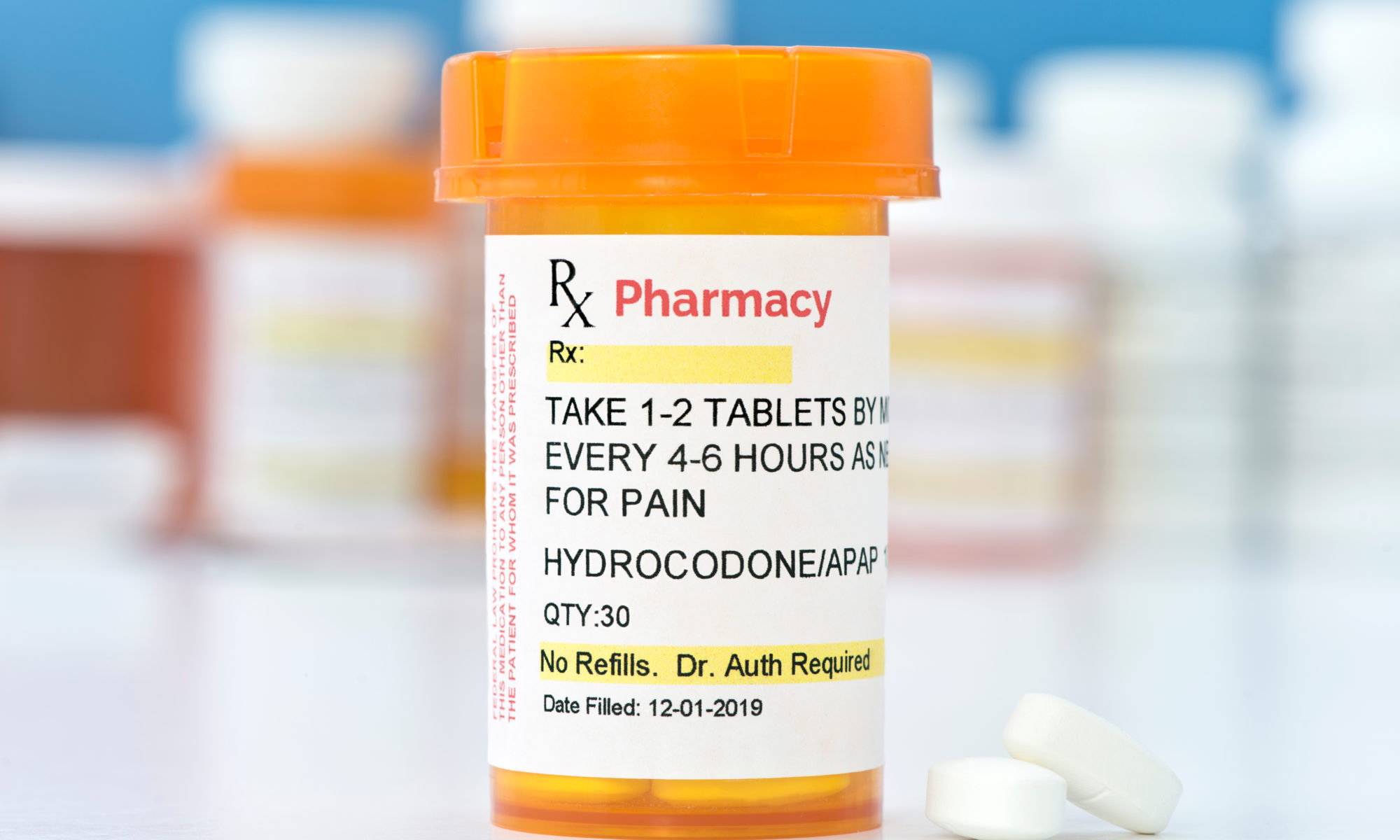Yes, But Here’s Why You Shouldn’t.
Hydrocodone is an opioid pain reliever that is sold under the brand names Vicodin and Norco. It results in feelings of euphoria as well as sedation. Hydrocodone is meant to be taken orally but some people abuse it by crushing the pills and snorting the powder.
This is known as insufflation. Any type of hydrocodone abuse is dangerous and there are general dangers of insufflation.
However, there are also specific risks of snorting hydrocodone. Not only can it damage the nose, throat, and lungs, but it can spread disease. Snorting hydrocodone also increases the risk of addiction and overdose.
If you or someone you love is thinking about snorting hydrocodone, you should abandon the idea. Let’s take a closer look at why misusing hydrocodone is never a good idea.
Why People Snort Hydrocodone
Now that you have the answer to the question “can you snort hydrocodone?”, you may be wondering why people do it. Why are drugs snorted? Individuals who snort hydrocodone don’t do it to enhance the pain-relieving effects. They do it to get a more intense high.
When a person snorts hydrocodone, it enters their bloodstream quickly and produces a rapid but short-lived high. Since the high doesn’t last very long, some people crave another dose and they abuse the drug repeatedly.
Some people also choose to snort drugs because they’re afraid of injecting them intravenously or they think snorting is less dangerous than smoking. However, the reality is that snorting is by no means safe.
The Dangers of Snorting Hydrocodone

While snorting opioids results in intense effects, tablets aren’t made to be used in this way. They’re made to slowly make their way through the gastrointestinal system. They aren’t meant to come into contact with the nasal passages or enter the bloodstream all at one time.
This is significant since hydrocodone tablets contain fillers that can irritate the nose, throat, and lungs.
Also, if you purchase your opioids on the street, you really have no idea what’s really in the tablets. Some of the hydrocodone sold on the street is counterfeit and it contains fentanyl. This is another powerful opioid that increases the risk of overdose.
People who abuse hydrocodone eventually usually obtain it illegally so they are likely to get a product that’s laced with something highly dangerous.
This is why you should never snort hydrocodone even though it is possible to do so. If you’ve been misusing hydrocodone or other opioids in any way, you need to contact an addiction treatment professional or talk to your physician.
The sooner you get help, the better it will be for your chances of lasting recovery free from substances.
Let’s discuss some of the dangers in more detail.
Nose Damage
Hydrocodone can damage the nose. The nasal tissues are very delicate and snorting any type of powder causes irritation and inflammation which can result in nosebleeds. As time goes on, the nasal tissue can become eroded and a hole may develop in the septum or roof of the mouth. This usually makes it difficult for the individual to breathe, eat or swallow normally.
When they breathe, the nose may make a whistling sound. Hydrocodone insufflation can also dry out the mucous membranes that should lubricate and protect the nasal packages.
In addition, it can damage the nasal hairs that are designed to trap foreign particles. People who snort hydrocodone may lose their sense of smell either partially or totally.
Throat and Lung Damage

Snorting hydrocodone is also harmful to the throat and lungs. Some of the powder will go to the back of the nose and drip into the throat or windpipe. If it gets onto the vocal cords, it will make the user’s voice hoarse.
Hydrocodone can also get into the lungs since the mucus membranes and nose hairs are no longer able to protect the respiratory system. Snorting this opioid can make asthma worse and also lead to respiratory failure.
Spread of Infectious Diseases
Snorting hydrocodone can also spread disease if people share their paraphernalia. Mucus can contain blood and diseases like hepatitis C can be spread from one person to another on straws or rolled-up paper.
Overdose
When a person snorts hydrocodone, they put themselves at high risk of overdose since the full dosage enters the system at the same time. If a person takes several doses, they may take a toxic amount of hydrocodone. Also, if they snort hydrocodone while they have other central nervous system depressants in their system, the effects will be even more intense.
They may lose consciousness, go into a coma, or even die. People who take increasingly high doses in response to increasing tolerance are most likely to overdose.
In 2019, 39 people, on average, died every day from overdoses involving prescription opioids. This meant that more than 14,000 people lost their lives. A person who is overdosing on hydrocodone may:
- Lose consciousness
- Vomit
- Have blue or cold skin
- Have slowed breathing
- Have a slow heartbeat or no heartbeat
Hydrocodone overdose symptoms can be reversed with the use of naloxone which is an opioid antagonist. It comes in the form of an injection called Evzio and a nasal spray called Narcan. These medications can keep an individual who is overdosing alive until emergency personnel arrive.
Addiction
Using hydrocodone in any way that it’s not prescribed is considered misuse or abuse and it can result in dependence in just a week. In fact, even five days of prescribed use increases the risk that a person will develop a chronic addiction.
When an individual is dependent on hydrocodone or any other opioid, they will need to take it regularly just to feel normal. If they don’t take the drug, they will go into withdrawal.
Because hydrocodone creates feelings of euphoria, people are encouraged to take it again and again to get the same effects. Since tolerance increases with continued use, they need more and more to achieve the same high.
Often, people don’t realize how dependent they are until they stop taking the drug or try to reduce their dosage.
It can be difficult for people to tell when their loved ones are addicted to hydrocodone. Most people who become addicted start by misusing their prescribed medication. They may take the pills more often than recommended or continue taking them for longer than instructed by their doctor.
They may also stop swallowing the pills and start crushing them and snorting or injecting them.
Addiction ranges from mild to severe. People who are addicted to hydrocodone may take more than they intend to or try to stop taking it but fail to do so repeatedly. They may also prioritize their drug use over personal, familial, or professional responsibilities.
Signs a Person Is Snorting Hydrocodone
Given all the dangers associated with snorting hydrocodone, you may be wondering if there are warning signs for loved ones. While people may hide their drug abuse in the early stages, they may become less cautious as time goes on.
If your loved one is abusing hydrocodone, they may doctor shop or get the drug online or off the streets. When hydrocodone is bought illegally, it may be packaged in unlabelled containers.
Signs of hydrocodone insufflation include:
- Frequent nosebleeds
- Powdery residue on their belongings
- A persistent runny nose
- Perpetual sedation
- Hoarseness
You may also notice the paraphernalia used to snort hydrocodone such as mirrors or other flat surfaces, rolled-up dollar bills or straws, and pill crushers or credit cards. If it appears that your loved one is snorting hydrocodone, you need to talk to them about getting professional help.
Treatment Options for Hydrocodone Abuse

Each person will have a unique experience when they undergo treatment. However, they will all start by undergoing medically supervised detox. Withdrawing from hydrocodone can be very unpleasant.
However, doctors can help to make the patient comfortable and keep them safe during the process. Professionals can administer medication as well as counseling to help with detoxification.
After detox, many individuals enter inpatient treatment. However, partial hospitalization or intensive outpatient treatment may be better for some people.
In rehab, individuals can benefit from a variety of therapies as well as medication-assisted treatment. With counseling and ongoing peer and professional support, long-term sobriety is possible.
Reach Out to Best Rehabs In Arizona Today!
If you or a loved one is snorting hydrocodone or abusing it in another way, you need to seek help. There are several dangers associated with hydrocodone abuse and without professional intervention, your life could be in danger.
At Best Rehabs In Arizona, we know what it is like to struggle with drug abuse and we also know what you have to do to fight addiction. We’ll help you to get to the bottom of your substance use problems and prepare you for long-term sobriety.
We offer a wide range of addiction treatment programs and we’ll tailor your treatment specifically to your needs.
Call us today to ask questions or learn more about the services we offer at our luxury rehab facilities in Arizona and Colorado.




